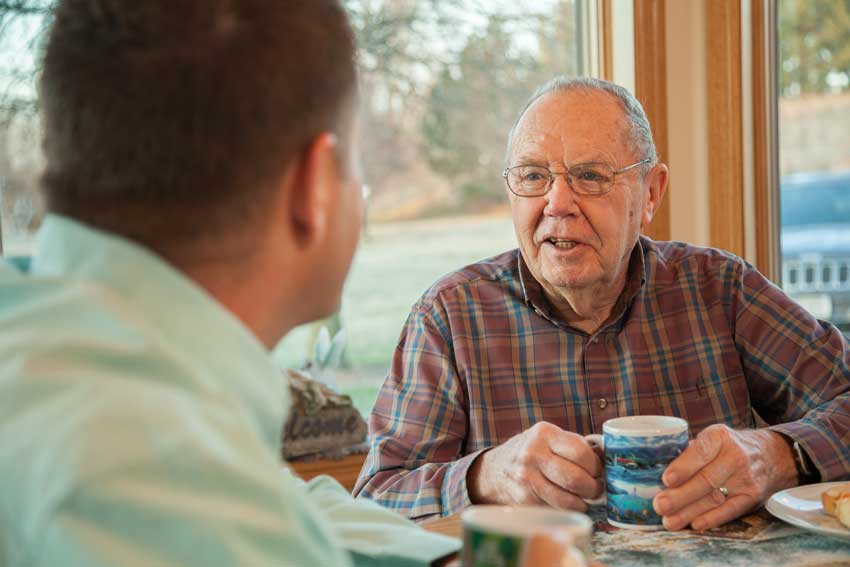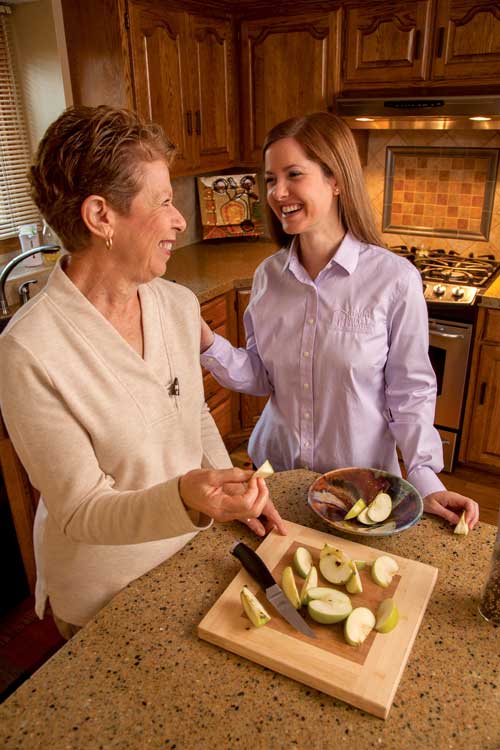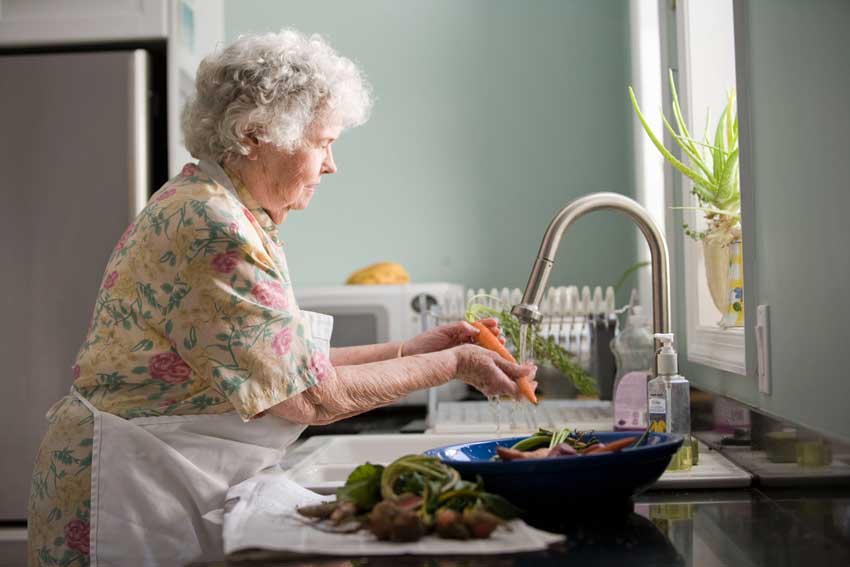Nutritional Needs for the Elderly

It’s common for elderly individuals to struggle to meet their nutritional needs, for a number of reasons. In fact, it’s estimated that almost 50% of older Americans are malnourished. This presents significant risks for your loved one, which makes it important for you, or someone you trust to monitor their nutrition.
What are the risks of poor nutrition for elderly people?
Older individuals need to maintain proper nutrition in order to keep the rest of their health in check. Unfortunately, there are many risks tied to poor nutrition in elderly people.
First, without proper nutrients, elderly people experience a weakened immune system which can increase the risk of infection and make it challenging to recover from illnesses. Right now, more than ever, maintaining a healthy immune system is critical for elderly adults who are at an increased risk for negative impacts from COVID-19.
In addition to a weakened immune system, poor nutrition weakens the muscles and bones. When this happens, elderly individuals are at an increased risk for falls and fractures. These types of injuries are more difficult to recover from as you get older, and are more likely to repeat themselves.
Moreover, poor nutrition puts elderly people at an increased risk overall for death and hospitalization. Nutrition isn’t something to take lightly. Even if your elderly loved one seems fine from the outside, you might not realize that they aren’t eating a healthy diet.
Why do elderly people struggle with proper nutrition?
There are many reasons your elderly loved one may be struggling with nutrition. Taste, smell, and appetite all change over time, which can make it hard to eat a proper diet. Dementia and Alzheimer’s also make it difficult to remember when to eat, what to eat, and how to prepare food.
Difficulty with chewing or swallowing, dental problems, or a reduced ability to use tableware can all make eating alone incredibly difficult. Unfortunately, it’s not always easy to ask for help when you need to. Some senior individuals are embarrassed to ask their families for assistance with everyday tasks.
Other common causes include different medications and illnesses which can reduce appetite and make it difficult to keep food down. Even after illnesses go away or medications are gone, it can be difficult to get back to eating like before.
No matter what the cause, poor nutrition is a serious concern.

How can I help my elderly loved one meet their nutritional needs?
In the case of any of the above, it’s unlikely that your loved one will reach out for help. This may be due to pride or a lack of awareness. As a result, it’s imperative that you help them keep an eye on their health.
If you’re able to help your loved one yourself, there are a few things you can try.
- Monitor their weight and keep a weekly log. If your loved one’s weight never rises back to a healthy level or continues to decrease drastically, seek medical help.
- Help with meal planning and preparation. With reduced fine motor skills, tasks like making lunch can become overwhelming. Supporting your loved one by planning out meals and helping to cook them can make it easier to eat consistently.
- Offer to make meals a social event. In non-COVID times, making meals a social event can be a great way to engage your loved one and get them excited about eating. In today’s times of social distancing, sharing a meal over Facetime or Zoom can be a great way to connect and catch up with your loved ones.
Support a well-rounded lifestyle. Nutrition needs aren’t all about supplements and vitamins. Maintaining an active lifestyle, enjoying the outdoors, and regularly interacting with others are all critical needs to maintain proper health.

What if I can’t help my elderly loved one?
As a friend or family member, there’s only so much you can do. If you’re struggling to help your loved one with their nutrition or don’t have the time to provide as much attention as they need, senior home care can be a great option.
With senior home care, your loved one remains in their home and trained experts come to them to help with daily tasks like cooking, eating, errands, cleaning, washing, and more. More and more seniors are preferring senior home care over retirement homes because it allows them to maintain their independence and stay in an environment they’re comfortable with.
Subscribe to our newsletter to stay informed about all the latest Right at Home - Milwaukee news.




